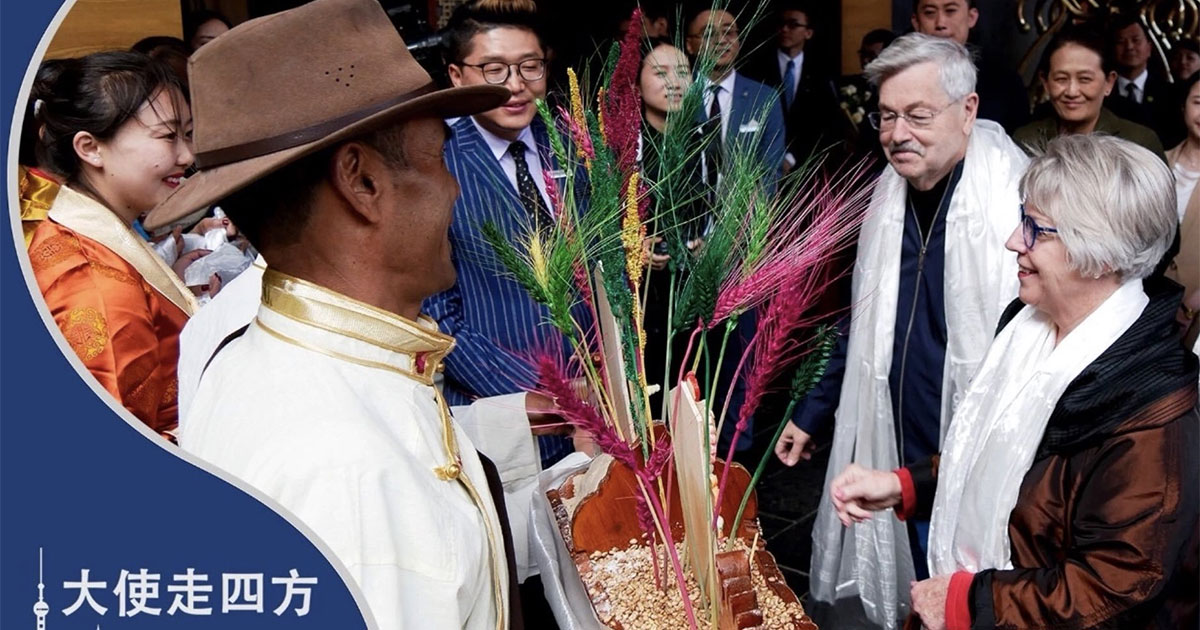
US Embassy in China posted this photo of Ambassador Branstad in Tibet on its WeChat account.
Amb. Terry Branstad’s visit to Tibet this week is another sign of the support of the United States for the Tibetan people, who continue to live under the oppressive rule of the Chinese government. It also shows that Congressional and State Department actions do have an impact.
As the State Department’s recent report on access to Tibet exposed, Chinese officials twice cancelled the ambassador’s visit in 2018 without providing any reason or suggesting alternate dates. But at the end of last year, the Reciprocal Access to Tibet Act was signed into law, and despite China’s response to the legislation, it has now allowed Mr. Branstad to enter Tibet for the first visit there by a US ambassador since 2015.
We are aware that Mr. Branstad will most likely be restricted in his interactions with the Tibetan people and won’t be allowed to talk freely to them. The Tibetans who in the past bravely spoke candidly with foreign visitors have been severely and tragically punished for that.
We are also aware that the Chinese government and the state-controlled media will present this visit to counter the growing awareness that China unfairly blocks access to Tibet for American diplomats, journalists and ordinary citizen, including thousands of Tibetan-Americans, who are specifically discriminated against when trying to visit their ancestral land. It is therefore crucial that Amb. Branstad speak openly and publicly to foreign media about his experience and the limitations that were imposed on his visit—limitations, it is important to remember, that Chinese diplomats never have to experience in the United States.
As the International Campaign for Tibet thanks Amb. Branstad for his visit, we will continue to work to ensure the full implementation of the Reciprocal Access to Tibet Act by the end of this year and to make sure the Chinese government understands that discrimination against American citizens who wish to travel to Tibet needs to be put to an end.

